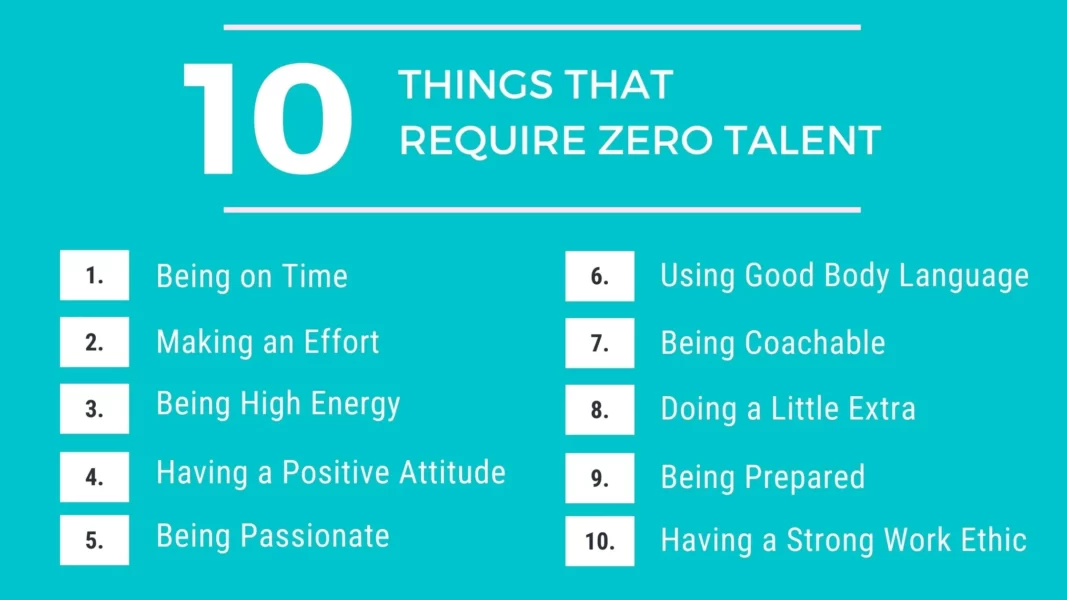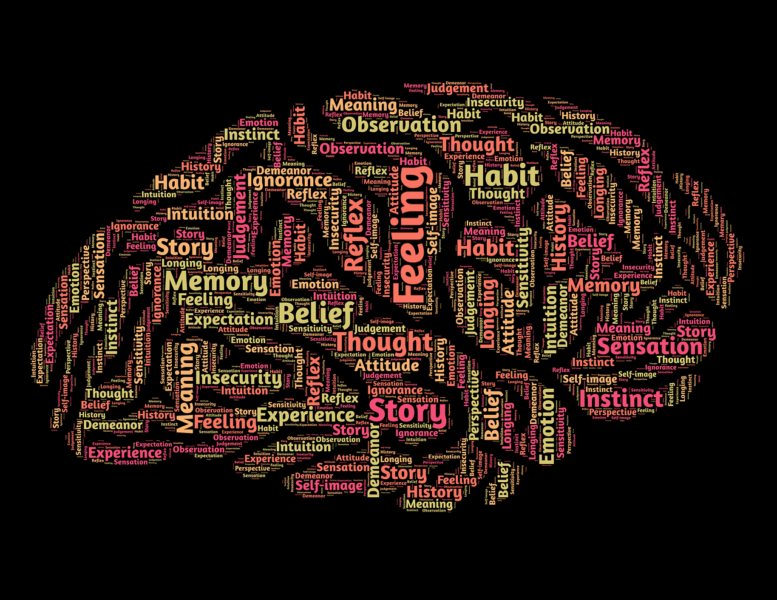Mastering Success: The Power of Qualities That Require Zero Talent
Discover the incredible impact of qualities that anyone can develop, regardless of natural talent. Dive into the world of positivity, reliability, adaptability, and more in our insightful article. Learn how to harness these attributes to enhance your personal and professional life. Unveil the secrets to success that are within your grasp. Don’t miss out on this transformative read!
The things that require zero talent
We often hear about the skills and talents that can propel us to success, but what about the things that require zero talent? In this article, we’ll explore the qualities that anyone can cultivate, regardless of their natural abilities. These attributes can make a significant difference in both personal and professional life.
Introduction
Achieving success isn’t always about innate talent. There are qualities that anyone can develop, and these “talents” can be far more influential than the abilities we’re born with. Let’s delve into the qualities that require zero talent but can have a profound impact on your life.

The Power of Attitude
A Positive Outlook
A positive attitude is infectious and can create a pleasant working environment. It’s about maintaining optimism even in challenging situations. A sunny disposition can uplift your coworkers and make you a pleasure to be around.
Staying Resilient
Resilience is the ability to bounce back from setbacks. It’s a quality that allows you to persevere through tough times and emerge stronger. Resilience is a trait that anyone can develop through determination and practice.
Reliability
Consistency Matters
Being reliable means delivering on your promises consistently. It’s about following through on commitments and being someone others can depend on. Reliability is a trait that fosters trust and respect.
Meeting Commitments
Keeping your word and meeting deadlines is a critical aspect of reliability. People who consistently meet their commitments are often regarded as highly dependable.
Adaptability
Embracing Change
In today’s fast-paced world, adaptability is key. It’s about being open to change and embracing it as an opportunity for growth. Those who adapt well to new situations often thrive.
Openness to New Ideas
Being open to new ideas and approaches demonstrates adaptability. This quality can lead to innovation and problem-solving.

Work Ethic
Going the Extra Mile
A strong work ethic involves putting in extra effort and dedication to your tasks. It’s not just about doing the minimum but striving for excellence.
Time Management
Managing your time effectively is an integral part of a good work ethic. Time is a valuable resource, and those who can utilize it well are often more successful.
Communication Skills
Active Listening
Effective communication starts with active listening. It’s the ability to understand and respond to what others are saying. Good listeners are more likely to build strong relationships.
Effective Speaking
The ability to express your thoughts clearly and persuasively is equally important. Effective speakers can convey their ideas and inspire action.
Teamwork
Collaboration
Working effectively with others is a talent that requires no inherent ability. Collaboration fosters creativity and helps achieve common goals.
Conflict Resolution
Conflicts are a part of any team. Those who can resolve conflicts peacefully and constructively are invaluable to any organization.
Problem-Solving
Critical Thinking
Critical thinking involves assessing situations logically and making informed decisions. It’s a quality that can be developed and refined over time.
Creativity
Creative problem solvers think outside the box and find innovative solutions. Creativity is a skill that can be honed with practice.
Self-Motivation
Setting Goals
Self-motivation is about setting and working toward personal and professional goals. It’s the driving force behind achieving your dreams.
Overcoming Challenges
Resilience, discussed earlier, is closely tied to self-motivation. It’s the ability to overcome challenges and keep moving forward.

Professionalism
Punctuality
Being punctual is a sign of professionalism. It shows respect for other people’s time and demonstrates responsibility.
Dress Code
Adhering to a dress code appropriate for your workplace is a simple yet essential aspect of professionalism.
Empathy
Understanding Others
Empathy is the ability to understand and share the feelings of others. It fosters better relationships and teamwork.
Compassion
Showing compassion by supporting others in times of need is a talent that requires zero natural ability.
Time Management
Prioritization
Prioritizing tasks is crucial for effective time management. It helps you make the most of your day.
Productivity
Being productive is a skill anyone can learn. It’s about making the most of your time and energy.
Leadership
Inspiring Others
Leadership isn’t just for the naturally gifted. It involves inspiring and guiding a team to achieve common objectives.
Decision-Making
Effective leaders make sound decisions. This skill can be developed through practice and learning.
Conclusion
In conclusion, the things that require zero talent are often the most valuable qualities in both personal and professional life. These attributes are within everyone’s reach, and they can make a profound difference in achieving success and fulfillment.
FAQs
1. What are the things that require zero talent?
Things that require zero talent are personal qualities and attributes that can be developed and honed by anyone, regardless of their inherent abilities. These include having a positive attitude, being reliable, adaptable, hardworking, possessing good communication skills, and being a team player. These qualities are highly valuable in personal and professional settings and contribute to one’s overall success.
2. How can I develop a positive attitude?
Developing a positive attitude involves consciously changing your mindset and outlook on life. Here are some steps to cultivate a positive attitude:
– Practice gratitude by acknowledging the things you’re thankful for.
– Surround yourself with positive influences and people who uplift you.
– Challenge negative thoughts and replace them with positive ones.
– Focus on solutions rather than dwelling on problems.
– Embrace resilience and view setbacks as opportunities for growth.
3. Why is reliability important in the workplace?
Reliability is crucial in the workplace for several reasons:
– It builds trust: Colleagues and superiors can depend on you to meet your commitments.
– Enhances your reputation: Being reliable makes you a respected and valued team member.
– Boosts efficiency: Reliability minimizes disruptions and keeps projects on track.
– Encourages teamwork: It fosters a culture of trust and collaboration within the organization.
4. How can I improve my adaptability skills?
To enhance your adaptability skills, consider the following steps:
– Embrace change willingly and view it as an opportunity for growth.
– Be open to new ideas and different perspectives.
– Continuously learn and update your knowledge and skills.
– Practice problem-solving and critical thinking.
– Develop a mindset that welcomes challenges and change.
5. What is the significance of active listening in communication?
Active listening is a fundamental component of effective communication with several key benefits:
– It fosters better understanding of the speaker’s message.
– It shows respect and empathy for the speaker’s viewpoint.
– It reduces misunderstandings and miscommunications.
– It builds stronger relationships, both personally and professionally.
– It encourages open and honest dialogue, enhancing problem-solving and decision-making.
https://www.investopedia.com/articles/pf/12/leadership-skils.asp






